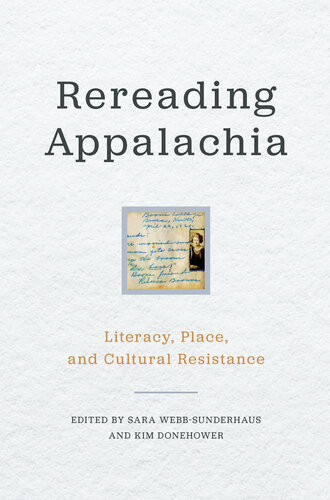

Most ebook files are in PDF format, so you can easily read them using various software such as Foxit Reader or directly on the Google Chrome browser.
Some ebook files are released by publishers in other formats such as .awz, .mobi, .epub, .fb2, etc. You may need to install specific software to read these formats on mobile/PC, such as Calibre.
Please read the tutorial at this link: https://ebookbell.com/faq
We offer FREE conversion to the popular formats you request; however, this may take some time. Therefore, right after payment, please email us, and we will try to provide the service as quickly as possible.
For some exceptional file formats or broken links (if any), please refrain from opening any disputes. Instead, email us first, and we will try to assist within a maximum of 6 hours.
EbookBell Team

4.3
68 reviewsAppalachia faces overwhelming challenges that plague many rural areas across the country, including poorly funded schools, stagnant economic development, corrupt political systems, poverty, and drug abuse. Its citizens, in turn, have often been the target of unkind characterizations depicting them as illiterate or backward. Despite entrenched social and economic disadvantages, the region is also known for its strong sense of culture, language, and community.
In this innovative volume, a multidisciplinary team of both established and rising scholars challenge Appalachian stereotypes through an examination of language and rhetoric. Together, the contributors offer a new perspective on Appalachia and its literacy, hoping to counteract essentialist or class-based arguments about the region's people, and reexamine past research in the context of researcher bias.
Featuring a mix of traditional scholarship and personal narratives, Rereading Appalachia assesses a number of pressing topics, including the struggles of first-generation college students and the pressure to leave the area in search of higher-quality jobs, prejudice toward the LGBT community, and the emergence of Appalachian and Affrilachian art in urban communities. The volume also offers rich historical perspectives on issues such as the intended and unintended consequences of education activist Cora Wilson Stewart's campaign to promote literacy at the Kentucky Moonlight Schools.
A call to arms for those studying the heritage and culture of Appalachia, this timely collection provides fresh perspectives on the region, its people, and their literacy beliefs and practices.